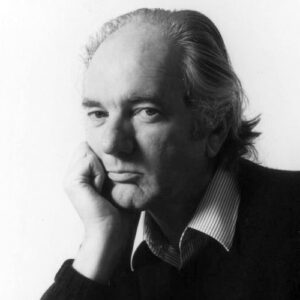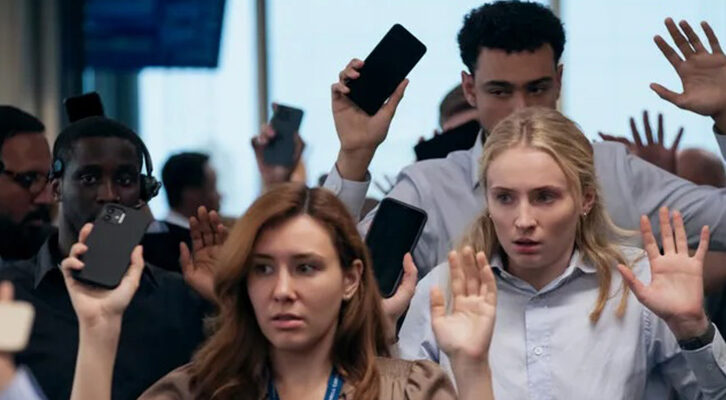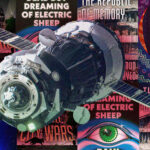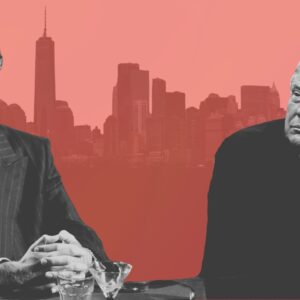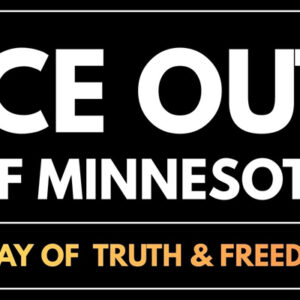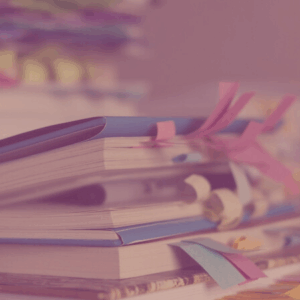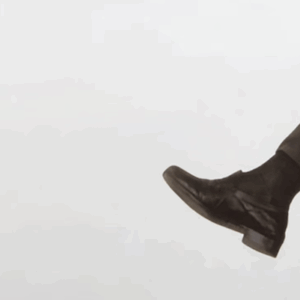
Why Every American Should Read The Reluctant Fundamentalist
Gabrielle Bellot on Radical Difference in the Age of Trump
This year I find myself thinking of the opening lines of a novel published in 2007. “Excuse me, sir, but may I be of assistance? Ah, I see I have alarmed you. Do not be frightened by my beard: I am a lover of America.” So begins Mohsin Hamid’s Man Booker-shortlisted The Reluctant Fundamentalist, a novel which follows the transnational journey of Changez, a young man from Pakistan, as he leaves Lahore and becomes a successful businessman in New York City. Later, Changez, who has begun to feel welcome in New York due to the city’s ethnic diversity, witnesses 9/11 on television while on a business trip in Manila, and his life abruptly changes. Changez is not a practicing Muslim—Hamid goes as far as to suggest, in an article in The Guardian, that Changez may be an atheist—yet everyone perceives him as Muslim due to his ethnicity and place of birth, which results in Changez having to take a series of major, unexpected steps. All of this he tells to an unnamed American—the “you” of the opening, though it is also, of course, perhaps aimed at “assisting” American readers more broadly.
The Reluctant Fundamentalist, to me, is a novel we should read, or reread, in 2016 as much as in 2007. While hardly the only novel to address 9/11, terrorism, and religious tensions, it is certainly one of the most accessible books to do so. Here is a novel that resists a single, moralistic interpretation; instead, how one reads the ending largely depends on what one assumes about Pakistan and America. We can shape events, and, perhaps more importantly, events can reshape us, can recreate us, like impulsive gods, in their own image.
There were few Muslims in Dominica, the island I grew up in, but there was one well-known Muslim family, well-known largely because they had opened a famous store for electronics in our capital city simply called “The Muslim Store.” I went to the shop every so often as a child with my mother, and, aside from the name of the store and the fact that the male employees wore gray or black thobes and that once in a while I saw women near the store in hijabs or niqabs, I never saw the store-owners as anything particularly different from anyone else; the family there just seemed like so many other families in Dominica, a part of the eclectic mix that made up the island. The idea that I should fear or despise someone for following Islam was utterly foreign to me until 9/11, which I watched on television at home in Dominica. Muslims were never “the Other” until the American media and my own ignorance, briefly, convinced me that they should be.
Years later, I thought of this Dominican family again. Now, I, who had been raised Roman Catholic and briefly become a Wiccan, was an atheist, and had learnt on my own more about how Islam, like all religions, came in varieties: Ahmadiyya, Sunni, Shia, Islamism, and so on. I had learnt about the Islamic Golden Age, which not only produced important intellectual contributions in astronomy, mathematics, and more, but without which the European Renaissance may never have occurred. The memory of the simple shop surprised me. It was a reminder of something obvious, yet all too easy to forget: hate is something we learn, something colored, like romanticizing, by our memories. Hatred, as William Hazlitt reminds us in his perversely delightful essay from 1826, “On the Pleasure of Hating,” is complex; “hatred alone is immortal,” he writes, and it may well be impossible to live without some degree of hostility towards something in us. But in so many cases, hatred is also a failure, not of love, but of nuance, of complexity. It is easy to hate when we make the world small and simple; it is harder to hate large groups when we are able to understand the variety that lives in said groups.
Of course, love is too simple an answer. The opposite of hating, after all, is not loving; it is understanding.
The simple revolutionary idea—which I, like many others, find myself needing to relearn sometimes—is that even radical difference, sometimes, can be benign.
* * * *
I’ve always opened my undergraduate course, Intro to Global Literature, with Hamid’s novel, a book I myself first read after my best friend recommended it. Many of the American students confess to me they came into the class with a negative image of Muslims. Yet the novel showed them something new. Instead of “the West” talking about “the East,” which is most often the kind of narrative they know, The Reluctant Fundamentalist flips the script by having a Pakistani man narrate the entire tale, denying “the American” a direct voice. A few of my American students say that this feels uncomfortable; some even initially accuse Changez, whose name Hamid chose to echo Genghis Khan, of being “anti-American.” This, of course, is the point—to show how it feels to be in a one-sided narrative. Changez’s occasional political asides to “the American” intrigued and unnerved some students, like his idea that “terrorism…was defined [by the American government] to refer only to the organized and politically motivated killing of civilians by killers not wearing the uniforms of soldiers.” And what makes the book rise above simple moralism is its lack of certainty: Changez is an unreliable narrator, who openly admits he cannot remember the specifics of certain memories, and he is both likeable and questionable. He is what we sadly often don’t get in so many fraught discussions about religion, race, and violence: a believable human figure.
In many ways, The Reluctant Fundamentalist depicts the opposite of Orientalism, which refers to a set of beliefs, stereotypes about, and depictions of “the East,” broadly, from Westerners, a sort of language or template for describing a vast range of countries and people. The term was made famous by the Palestinian-American critic Edward Said’s 1978 book, Orientalism. Orientalism is the source of many stereotypes about “the East” in Western texts from the 18th century up to even the present; crucially, it is virtually always Westerners writing about the East within the system of Orientalism, with some Orientalists never having even set foot within the countries they claimed to be experts on. Orientalist rhetoric influenced how many Westerners imagined the Middle- and Far-East, creating a system whereby people can be reduced to what Chimamanda Ngozi Adichie calls “the single story.” It’s a bit like looking at the moon with poor eyesight and seeing a perfectly smooth orb, which was a dominant view of what the moon was in the Western world for centuries, whereas, as Galileo pointed out, the moon’s surface is actually hilly and pockmarked, a lunar carpet no less beautiful for its pattern looking different through a better lens. The bad lens of Orientalism is where the over-the-top language of texts like Sax Rohmer’s Fu Manchu series comes from. Hamid’s novel, by reversing who gets to talk and who is reduced to stereotypes, attempts to fix this problem by shifting its weight.
* * * *
And something needs to be fixed in America. Anti-Muslim bigotry has become, unfortunately, the kind of thing I now expect to see in the news each day—the kind of bigotry whereby a man in Virginia is applauded in 2015 for yelling out “every Muslim is a terrorist. Period,” the kind of bigotry where Ben Carson can say a Muslim is not fit to be President of the United States, the kind of bigotry where Donald Trump can in fascistic fashion call for a ban on all Muslims entering America, the kind of bigotry where Katrina Pierson, Trump’s spokeswoman, can go on CNN and support Trump’s ban by, incredibly, saying, “So what? They’re Muslim,” the kind where Milo Yiannopoulis, darling of the alt-right, claims that he feels safer as a gay man under a Trump presidency because he assumes that all Muslims are homophobic fanatics. Merely transcribing Trump’s speeches produces something resembling the crudest form of Gonzo journalism, even as I doubt Trump has read Hunter S. Thompson, and even as Thompson’s Gonzo, at least, is art. Such bigotry is a masterpiece of Othering from a man who, by his own admission, knows little about politics in the world—Trump recently did not know the difference between Hezbollah and Hamas—and the same appears to be true for many of his supporters. Of course, Trump supporters have many individual motivations, but it’s disquieting when polls suggest nearly 90 percent of such voters support Trump’s proposed Muslim ban.
To be sure, anti-Muslim sentiment far predates 9/11. The idea that Islam represents the “Other” to Christianity and to “the West” was a large part of the Crusades’ ideological foundation. It constitutes much of Orientalism. It appears frequently in Western literature: in the famous Chanson de Roland from the 11th or 12th century that depicts Charlemagne fighting “barbaric” Muslims; in Ludovico Ariosto’s 1582 mock-epic Orlando Furioso; in the original (later edited) version of the song that Disney’s Aladdin opens up with, “Arabian Nights,” which calls the fictional Arab world of Agrabah—and, implicitly, the Arab world broadly—a “barbaric” place where “they cut off your ear / If they don’t like your face.” A very similar image of barbarism appears in Shirley Jackson’s famous story, “The Lottery,” only it is applied to a New England town rather than to “the East”—yet to too many Western readers, Jackson’s story seems shocking, while vast generalizations about Muslims slip under the radar.
But isn’t contempt easier, when it’s already the story we so often have in the back of our minds?
Even the title “Muslim” is not as simple as “follower of Islam.” Even fundamentalism, as a concept, has a history, has shades of meaning. We can accept this without supporting the actions of fanatics—actions that many Muslims would not support, either. Many religions, like most things in life, contain multitudes; there is even a group of Christians, the theothanatologists, which briefly became famous in 1966 when Time ran a feature on them, who literally believe that God has died, yet still use the label “Christian.”
Contemporary anti-Muslim bigotry is not about criticizing violence or intolerance, things I support speaking out against. And it is not about freedom of speech, either, since I believe in protecting that right, even if it means that speech can be used against me. I believe in teaching people why it is overly simplistic or simply wrong to say certain things rather than simply banning people from saying said things, since the latter usually causes more problems than it solves. Othering, at its most extreme, is a step towards accepting a kind of loose solipsism, a step towards making you believe that everyone else is somehow not really as human as you. That is a path to enabling, if not at worst endorsing, fascism. And make no mistake—Trump’s comments both enable and endorse fascism. “Political correctness” cannot be a cover for ignorant prejudice.
Fear is the mind-killer, as the Bene Gesserit recite in the Dune series. So, too, is hatred.
* * * *
“For me,” Hamid wrote in The Guardian in 2011, “writing a novel is like solving a puzzle. But I don’t intend my novels as puzzles. I intend them as introductions to dance.”
Perhaps life is like Hamid’s novels: puzzling, but with a hand out for a dance. And, should we take its hand without assuming the dance we will be led into, everything may seem lovelier: music, steps, synergy. Of course, this is a romanticization. Some of us do not really get to choose who we dance with, or if we can dance at all. But perhaps the key to the puzzle is realizing that many of us who can dance might do it better, if we only loosened up and let go, for a bit. For me, literature is about learning the contours of the self, about putting yourself in someone else’s shoes, be they ballet flats, snowboard boots, espadrilles, shoes that bind your feet, or no shoes at all. Literature is about learning to accept all human experience as human, whether or not it ties with our codes of morality or beliefs about the universe. “Human” doesn’t mean good, of course—but it is frightening how easily some of us can forget that “human” means just that—“human,” and not “monster.”
Novels may not solve problems, per se, but I think we need Hamid’s novel now, all the same, and others like it. And, perhaps, with it, we may find ourselves in a better, more well-lit place, a place many of us know of but which we all often struggle to find the door to: understanding.
Gabrielle Bellot
Gabrielle Bellot is a staff writer for Literary Hub. Her work has appeared in The New York Times, The Atlantic, The New York Review of Books, The New Yorker, The Paris Review Daily, The Cut, Tin House, The Guardian, Guernica, The Normal School, The Poetry Foundation, Lambda Literary, and many other places. She is working on her first collection of essays and a novel.









